How to Fix Dell Laptop Running Slow on Windows 10/11
Dell makes some of the best laptops on earth. Their laptop designs look amazing, they are reasonably priced, and they are also lightweight and feature-rich. However, Dell laptops have become slow over time. Is your Dell laptop running slow, too?
Knowing exactly what makes your Dell laptop run slow will help eliminate the performance drop, so you can enjoy the same snappy speeds you're used to. Continue reading this article as Qiling will share what causes your Dell laptop to run slow on Windows 10 and Windows 11.
| ⏱️Reading Time | 3-5 minutes |
| 🧑💻Task | Fix Dell laptop slow error, including laptop running slow, slow to startup, unresponsive |
| ⛏️Solutions | |
| ✍️Difficulty | Easy with a step-by-step guide |
How to Fix a Dell Laptop Running Slow
As promised, here are a few solutions that should fix your Dell laptop that is running slowly:
1. Remove All External Devices and Restart the Computer
Have you plugged in external devices such as monitors, mice, keyboards, and SSDs or HDDs? Disconnect all of them for anything you have connected to your computer and restart your PC.
The reason you need to disconnect is that these devices use your laptop's resources, and there is a possibility that when starting up your laptop, these devices are consuming too many resources, resulting in your Dell laptop slowing down.
2. Check for Malware
If your laptop is infected with malware, it can corrupt most of your laptop's operations. It can cause your laptop to become unresponsive, prevent it from booting up, and slow it down. Using a malware remover, check for malware and remove it.
You could use a third-party malware remover tool or Windows own Windows Defender to check and remove malware.
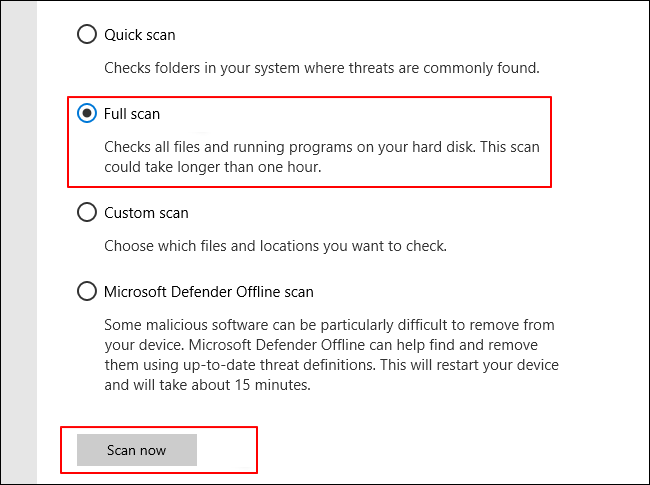
Alongside Windows' built-in virus cleaning utility, you can also run a third-party software such as TotalAV which enables you to remove virus, malware, and get rid of online threats from your PC:
TotalAV is an Award Winning Antivirus and Security Software. It Provides Real-Time Protection from Viruses, Malware & Online Threats.
Antivirus Protection Enabled
3. Optimize the Startup of Windows 10
On your computer, some installed programs could be configured to launch automatically when Windows is booted. This could slow down your laptop. Disabling this will help your laptop boot up faster.
Here's how to disable apps that are set to launch when Windows boots up:
Step 1. Right-click on the "Start" button and select "Task Manager."
Step 2. Click on "Startup."
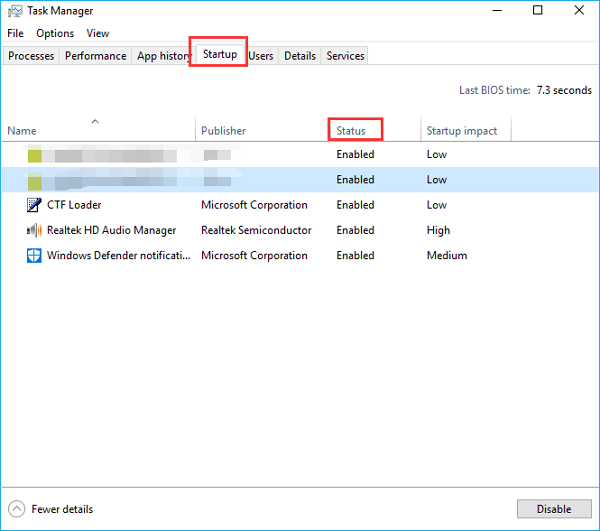
Step 3. Right-click on the apps that are marked "High" under "Startup impact" and select "Disable."
Hopefully, this fixes your issue if it doesn't, check out our next section!
4. Increase C Drive Space
If your C drive is full, this may be why your Dell laptop has slowed down. Deleting apps and unnecessary files should free up space. Remove unused apps and delete their cache files immediately. Restart your PC and see if your laptop is faster now.
Alternatively, you can also use Qiling Disk Master, which is trusted by more than 530 million users, to use the extended partition feature and increase Local Disk C's storage space. This should give you more storage space for Local Disk C, and your laptop should run faster now.
Option 1. Extend System C drive with unallocated space
- 1. Right-click on the System C: drive and select "Resize/Move".
- 2. Drag the system partition end into the unallocated space so to add it to the C: drive.
- 3. Click "Proceed" to execute the operations and extend the C drive.
Option 2. Extend System C drive without unallocated space
- 1. Right-click a big partition with enough free space on the system disk, select "Allocate Space".
- 2. Select the system drive at the Allocate Space From (*) To section, and drag the end of System C drive into the unallocated space.
- 3. Click "Proceed" to save the changes and extend the C drive.
0:00-0:26 Extend System Drive with Unallocated Space; 0:27-0:58 Extend System Drive without Unallocated Space.
However, if this didn't help, check out our next solution, which should help!
5. Clean Up the Hard Disk
The hard disk should be cleared if the above solution doesn't help.
Here's a quick way to delete files and increase Local Disk C's storage space:
Step 1. Click on the magnifying glass icon.
Step 2. Search and open "Disk Cleanup."
Step 3. Select the file types that take too much space and click "OK."
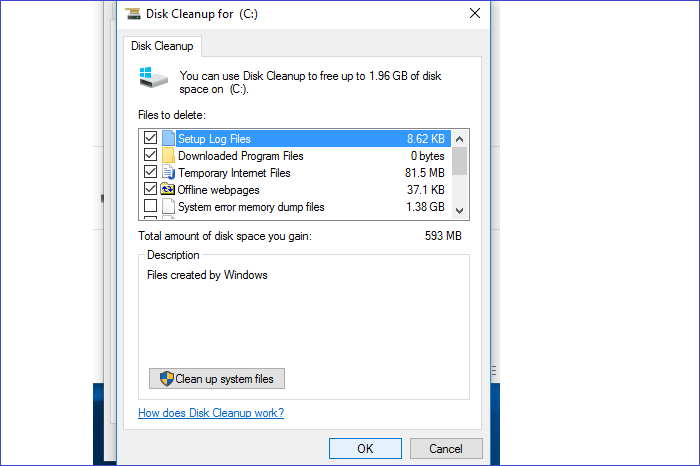
Step 4. You'll see a prompt. Click "Delete Files" to delete all the selected file types.
There's even a better solution than the one mentioned above. You can use Qiling Disk Master's wipe hard drive feature to clear everything in a few clicks and free up space on your hard drive in a few seconds.
6. Defragment the Hard Drive
A corrupted or fragmented hard drive could also cause this problem. As a result, you must defrag the hard drive. Here's how to go about it:
Here's what you need to do:
Step 1. Click on the magnifying glass icon and search "Defragment and Optimize Drives."
Step 2. Select the drive you want to clear and click on "Analyze."
Step 3. After scanning the drive, select it and click "Optimize."
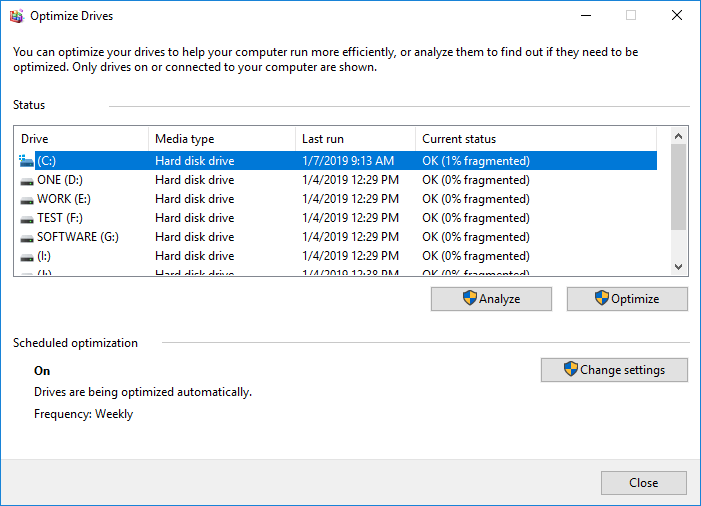
Step 4. Restart your computer and check if your laptop is still slow.
7. Upgrade Dell Hard Drive to SSD
If nothing has worked so far, swap your hard drive with an SSD, as SSDs are much faster and more durable than HDDs. But moving data is a task, and we know that. However, using Qiling Disk Master, you can clone the data on your HDD and move the exact data to your latest SSD. And SSD storage capacity should be equal to or even bigger than used disk space on Dell HDD.
Then, download Qiling Disk Master and follow the steps to clone data:
Step 1. Select the source disk.
- Click the "Tools" tab page. Select the "Clone OS Disk" or "Clone Data Disk".
- Choose the source disk and click "Next".
Step 2. Select the target disk.
- Choose the wanted HDD/SSD as your destination and click "Next" to continue.
- Read Warning message and confirm "Yes" button.
Step 3. View the disk layout and edit the target disk partition size.
Then click "Continue" when the program warns it will wipe out all data on the target disk. (If you have valuable data on the target disk, back up it in advance.)
You can select "Autofit the disk", "Clone as the source" or "Edit disk layout" to customize your disk layout. (Select the last one if you want to leave more space for C drive.)
Step 4. Click "Proceed" to start the disk cloning process.
After swapping your HDD with an SSD, check if your laptop runs faster after upgrading the drive. If it didn't, the issue could be with the RAM.
You may also like the following topics about hard drive upgrades:
8. Increase the Capacity of RAM
If the above solutions don't work, your Dell laptop may run slower because of insufficient RAM. Upgrade your RAM and check if it runs faster now. Hopefully, upgrading your RAM should help your Dell laptop perform normally, especially for RAM is less than 4 GB:
Step 1. Check the specific condition of your RAM: open Task Manager>Performance>Memory.
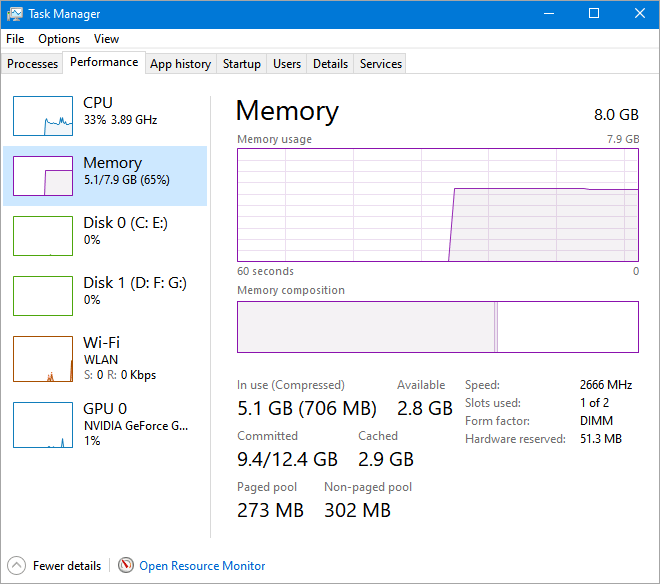
If the RAM is out of space, you can clean it or upgrade it to a larger one:
Step 2. Turn off the laptop and remove the laptop battery.
Step 3. Check for compatible RAM and install the RAM into the slot.
Step 4. Cover the back panel and turn on the power.
We hope this article helped you fix your laptop and it now works normally. Share this article with your friends and family who own Dell laptops and face the same issue. Help them out by sharing this article with them.
Overview of Dell Laptop Running Slow
Dell laptop is running slow is a very normal condition. Many users have reported this in the forums. Here is a typical case:
But don't worry! We've provided detailed solutions on the above part. In the next section, we explain clearly what causes the issue, and you can avoid the error. Here are two questions that people usually care about Dell laptop:
1. What Are the Dell Performance Issues?
Here are some performance issues you will experience when your Dell laptop starts running slowly. However, remember that these are fixable using the solutions below.
- Your Dell laptop may become unresponsive.
- Your laptop could keep freezing.
- Your laptop gets unreasonably hot quickly.
- It takes ages for Windows to boot up.
All of these symptoms indicate that your Dell laptop performance needs a boost. Based on these symptoms, you can detect laptop problems in advance and fix them as soon as possible.
Further Reading: Dell No Bootable Devices Found
2. Why Dell Laptops Running Slow
Several reasons could be causing your Dell laptop to slow down. Here are some of them:
- Insufficient RAM
- When Windows 10 was updated, the outdated files weren't properly deleted.
- Outdated drivers
- Fragmented hard drive
- Malware infection
- Disk error
- Low storage space
This article provides corresponding solutions for these reasons. You can continue reading the content provided earlier to fix Dell laptop running slow.
Conclusion
Do you know how to fix your Dell laptop running slow? In our opinion, you should disconnect all the external devices and check for malware first. If these aren't the reasons behind this issue, in that case, we'd recommend optimizing startup apps or cleaning up your hard disk. Also, try swapping your HDD for an SSD and upgrading your RAM.
During the repair process, I highly recommend using Qiling Disk Master - this powerful disk partition management software. If you have any problems with your Dell laptop, you can ask it for help and use it to boot from USB on Dell laptop.
FAQs About Dell Laptop Running Slow
Do you have any other questions about why your Dell laptop running slow? Here, we answer a few questions about it.
1. Why is my Dell laptop slow to startup?
Multiple reasons may cause your laptop to run slowly, such as insufficient hard disk space or RAM, outdated drivers, or your laptop being infected with malware.
2. How do I speed up my Dell laptop?
Follow our solutions above, as we've shared all the methods you can try to speed up your Dell laptop, including:
- Increase C drive space
- Clean up the hard disk
- Defragment the hard drive
- Upgrade Dell hard drive
3. Why is my laptop slow all of a sudden?
If your computer suddenly slows down, you may be running too many programs at the same time. Running too many programs may cause your computer's performance to decrease, which affects its processing power. In addition, a virus infection or malware may also cause your computer to slow down suddenly.
Related Articles
- How to Extend C Drive in Windows 10 Without Formatting
- 5 Ways to Hide Drives in Windows 10 | Check Your In-depth Tutorial
- What Is the Best MBR to GPT Convert Tool? Your Checklist Here
- Resize/Move Partitions to Solve Low Disk Space Issue